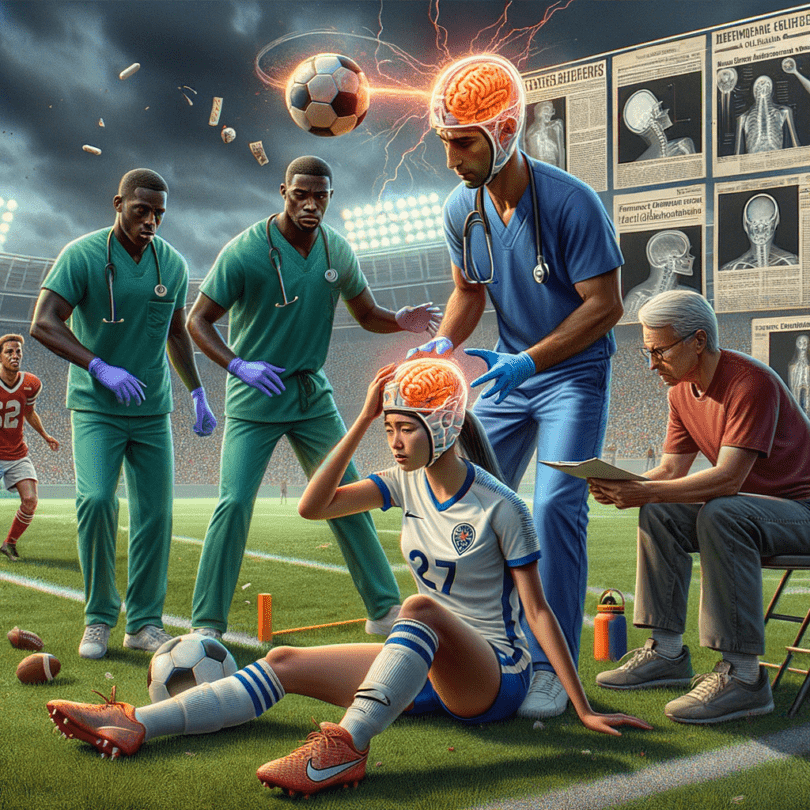So, guess what? A new study has revealed that if you get a mild concussion while playing amateur sports, it doesn’t lead to long-term cognitive decline. This might seem to go against a lot of what we’ve heard about head injuries and concussions. But, if you dig a bit deeper into the study, the message is pretty clear: getting hit on the head repeatedly isn’t good news.
This study is part of a huge, community-focused research project aimed at figuring out how healthy brains age and what might boost the risk of dementia. Considering all the recent lawsuits from athletes with brain injuries and the growing evidence linking concussions to reduced cognitive function later in life, examining past head injuries over the long haul makes perfect sense.
They asked more than 15,000 people aged between 50 and 90 to recall any head injuries they had, noting how or where they got them—like from playing sports or being in a car accident—and the symptoms they experienced, such as passing out, feeling dizzy, or having blurry vision. Each year, for four years, they checked in on these folks’ behavior and cognitive abilities.
Turns out, one mild sports-related concussion didn’t lead to any long-term behavioral or cognitive issues. Actually, those who’d had one mild concussion while playing sports even did a little better on some tests. Maybe playing sports regularly had its perks.
But here’s the twist: as the number of past concussions climbed, those benefits disappeared, and performance started dipping. This pattern held true for concussions outside of sports, too—one wasn’t too bad, but multiple concussions were.
The takeaway? It doesn’t really matter how you get a concussion; if you get a lot, your long-term outlook could be bleaker. This is especially why athletes in contact sports face higher risks of brain injuries.
The study results are a bit complex, mixing various outcomes across different groups with varying numbers of concussions. Just because a single concussion didn’t lead to cognitive issues doesn’t mean there’s no injury. It could be that the brain, like a spare tire, can handle a bit of damage and keep functioning. But—go overboard, and it starts acting flat.
In essence, any small brain injury might be handled okay by your brain, but stack them up, and you might end up with performance issues, just like a flat tire. It’s why players should be “recognized and removed” from games after a concussion.
Having just one concussion doesn’t mean you’re destined for cognitive troubles later on. But the more concussions or mild brain injuries you rack up, the greater the risk, no matter if you’re an athlete or not.
This study only looked at mild concussions, which means a head injury where consciousness is lost for less than 30 minutes, or you just feel dazed. More severe concussions would likely have a bigger impact, especially if you’ve had several.
On the flip side, one mild injury doesn’t undo all the brain benefits that sports bring. Things like regular exercise and social interaction, linked to playing sports, are great for keeping cognitive skills sharp as you age. Plus, a healthy lifestyle—cutting out smoking, keeping alcohol in check, eating well—can help shield you from life’s little scrapes.

